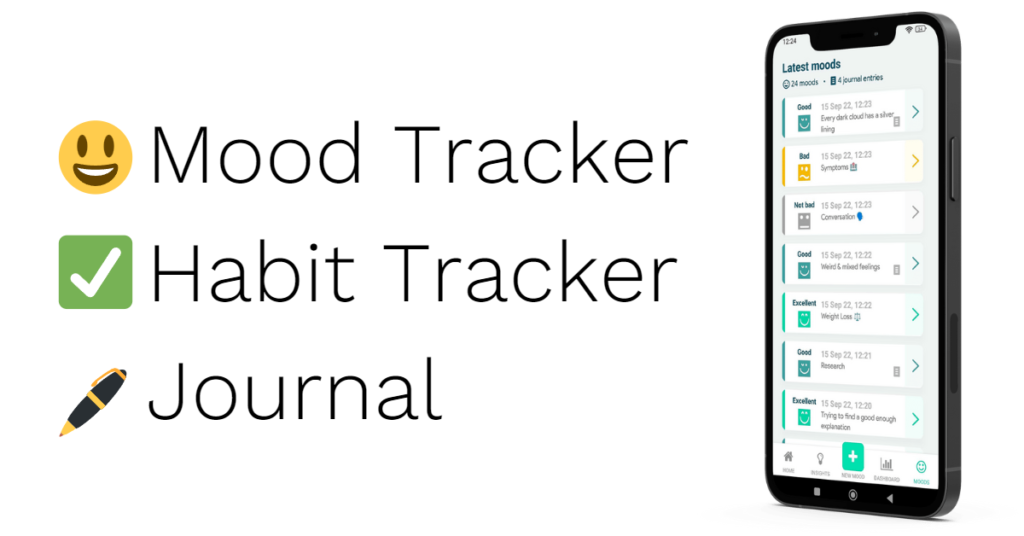What is the difference between depression and sadness?
Many people use the words “sad” and “depressed” interchangeably: how many times have you hear people say “I feel depressed“, when in fact, they are just describing a state of sadness? (albeit deep sadness)
Depression and sadness are related — but at the same time, they are distinct. Here’s how:
Sadness is a normal human emotion that is usually triggered by a specific event or situation, such as the loss of a loved one, the end of a relationship, or a disappointment. Sadness is nothing but a natural and appropriate response to these types of situations – and it generally fades over time as the individual processes and comes to terms with the event.
Depression, on the other hand, is a serious mental health condition characterized by persistent feelings of sadness, hopelessness, and loss of interest in activities that were once enjoyable. Depression can also be accompanied by other symptoms such as fatigue, changes in appetite and sleep patterns, difficulty concentrating, and even thoughts of suicide.
Depression is not a short-term emotional state. It is a long-term condition that can last for weeks, months, or even years if not treated. Depression is caused by a complex interplay of genetic, biological, environmental, and psychological factors, and it can be treated with a combination of medication, therapy, and lifestyle changes.

In short, while sadness is a normal emotion, usually related to a specific event or situation, depression is a serious mental health condition that can have a significant impact on a person’s daily life and overall level of well-being.
Now, that we have clarified the difference, let’s see:
What are the external factors that trigger low moods?
Depression – and mere sadness – can be caused by a whole variety of internal and external factors. The internal causes can range from genetics and brain chemistry to “rumination” (the tendency to involuntarily dwell on recurring negative thoughts).

In this article, we would like to focus on several external factors that can contribute to the development of low mood states:
🍎 Nutrition: A diet that is high in processed foods and low in essential nutrients can contribute to the development of depression and sadness. Studies have shown that a diet that is rich in fruits, vegetables, whole grains and lean proteins can help to improve mood and reduce the risk of depression.
🌞 Light: Exposure to natural light is important for maintaining a healthy circadian rhythm, which can help regulate your mood. People who are exposed to low levels of light during the day, such as those who work in office buildings or spend a lot of time indoors, may be at a higher risk of developing depression or just feeling sad.
🛌 Sleep: The deepest form of physical rest is crucial for your overall health and well-being. A lack of sleep can cause irritability, fatigue and cognitive impairments. People who have insomnia or other sleep disorders may be at a higher risk of developing depression, due to the imbalance created in the body, that also influences the mind.
🫂 Social Support: Social support is a very important external factor that can affect your mental health. People who lack social support are more likely to dwell on their intrusive negative thoughts, and thus, experience depression and sadness.
😟 Stress: Under its many forms, stress can take a toll on your mental and physical health. If you overburden your mind-body system with chronic stress, it can react by causing depression. In reality, sadness and depression are coping mechanisms that allow you to retreat from the facing the many difficulties of life, giving you time to pause and reflect.
🧍 Lack of Physical Activity: Regular physical activity can help reduce symptoms of depression and sadness, as well as improve overall health. The Latin origin of the word “emotion” comes from the word “motion”, and our mind-body system loves movement. We were not made to be sedentary.
Taken together, these external factors can increase the risk of developing depression.
It is important to note that depression, being a serious mental health condition, should be treated by a professional. While addressing external factors can help alleviate symptoms, it is not a substitute for professional treatment. In case of severe depression, seeking professional help is crucial.
Now that we know all of this, let us discover the…
Myths about Depression
Not everything you have heard about what causes depression is true. Here are just some of the most frequent myths about its roots and causes:
Myth #1: Depression is caused by by weakness or laziness, aka “you are a weak person if you feel sad or depressed“. In reality, some of the toughest and most resilient people you admire may have suffered from depression at one point or another in their life! This myth is dangerous because it not only blames the victim, but also puts too much pressure on them to “not be depressed”, while oversimplifying the way our mind works.
Myth #2: Depression is caused by “negative thinking”. This myth comes from a wrong way of understanding the human emotion spectrum. This is also famously called “toxic positivity”. People who use phrases like “good vibes only” put excessive pressure on themselves to only feel the “good” emotions on the spectrum, while trying as hard as they can to run away from their “negative” feelings, by disowning them, denying or burying them. The problem with this myth – apart from the fact that it stems from completely false information – is that the person who suffers from depression might become frustrated at not being able to succeed in implementing an apparently simple solution (“just think positive thoughts“, right?) which, in reality, does not work.
All moods and emotions need to be felt for a while, and the difficult ones need to be dealt with before we can move on. Running away from them will not solve their root cause.

Myth #3: Depression is triggered exclusively by chemicals in our brain. While it is true that neurotransmitters play an important role in depression, they are not the only factor in this complex phenomenon. Most cases of depression are caused by a mix of factors, and talking to your mental health specialist will help you uncover, understand and address these factors. The chemical imbalance theory is only a part of the story, depression is caused by the interaction of multiple factors including genetics, stress, brain chemistry, and life events.
Myth #4: Depression means lack of willpower. This oversimplification does not take into account that some of the most mentally tough people can experience depression, and no amount of willpower is sufficient to have overcome it, unless you add other factors into the mix, such as changes of perspective and different thinking habits.
Myth #5: Depression is caused by one specific event or life situation, such as a breakup or the loss of a job. In reality, while such events may trigger a chain of bad moods, the individual who develops depression needs to add a few dysfunctional coping mechanisms to these states of sadness in order to develop depression. This is why only some people develop depression while others don’t when faced with the same kinds of life challenges.
Myth #6: Depression is caused by poor parenting or bad childhood experiences. While such factors may lay the foundation for dysfunctional mood regulation strategies and less-than-ideal coping skills, they do not automatically cause depression. While childhood experiences and parenting can play a role in the development of depression, they are not the sole cause of the illness.
These myths are not true because they rely on oversimplifying a complex illness that can be caused by a combination of genetic, biological, environmental, and psychological factors. While certain life events or situations can contribute to depression, they do not necessarily cause it. Many people experience a variety of difficult life events without developing depression.

Conclusions
1. It is important to understand that depression is a complex illness that cannot be blamed on one specific cause.
2. It is important to seek help from a mental health professional if you are struggling with depression.
3. While feelings of sadness may be hard to endure at certain times, running away from them does not help either. Quite to the contrary, it makes the repressed feelings grow stronger.
4. It is important not to blame or judge the person who suffers from depression for developing it, or put excessive pressure on them to implement “solutions” that do not work, such as positive thinking or keeping busy to forget about the hardships of life.
When everything you tried has failed, we strongly recommend you to talk to a mental health expert about the best course of treatment, which may or may not include medication and/or individual “talk” therapy.
Here is a useful idea:
Becoming mindful of your moods is of crucial importance in dealing with sadness and depression. Using a digital mood tracker app installed on your smartphone (which you probably carry with you most of the time) is probably the best option you have to stay connected to your mood fluctuations and being able to detect persistent sadness and deal with it before it develops into something more, such as depression.
Time2life is the fastest way to track your mood, along with the events that influence it at the time it occurred.

Download it today and enjoy clear, actionable insights that can help you discover what makes you feel good and what makes you feel bad, so you can know yourself better and manage your moods more efficiently.
